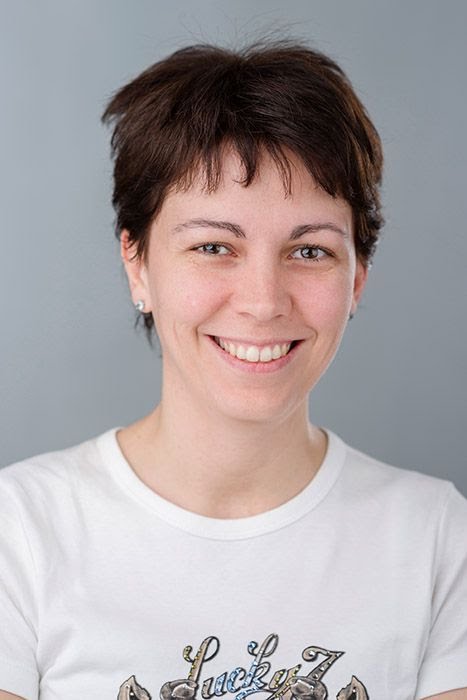Studying at the University of Verona
Here you can find information on the organisational aspects of the Programme, lecture timetables, learning activities and useful contact details for your time at the University, from enrolment to graduation.
Academic calendar
The academic calendar shows the deadlines and scheduled events that are relevant to students, teaching and technical-administrative staff of the University. Public holidays and University closures are also indicated. The academic year normally begins on 1 October each year and ends on 30 September of the following year.
Course calendar
The Academic Calendar sets out the degree programme lecture and exam timetables, as well as the relevant university closure dates..
| Period | From | To |
|---|---|---|
| Primo Semestre Triennali | Sep 18, 2017 | Jan 12, 2018 |
| Secondo Semestre Triennali | Feb 19, 2018 | Jun 1, 2018 |
| Corsi intensivi estivi (Alba di Canazei) | Jul 9, 2018 | Aug 3, 2018 |
| Session | From | To |
|---|---|---|
| Prove Parziali Primo Semestre | Nov 6, 2017 | Nov 10, 2017 |
| Esami Sessione Invernale triennali 2017 | Jan 15, 2018 | Feb 16, 2018 |
| Prove Parziali Secondo Semestre | Apr 9, 2018 | Apr 13, 2018 |
| Esami sessione estiva triennali 2018 | Jun 4, 2018 | Jul 6, 2018 |
| Esami sessione autunnale 2018 | Aug 27, 2018 | Sep 14, 2018 |
| Session | From | To |
|---|---|---|
| Lauree sessione autunnale (validità a.a. 2016/17) | Nov 27, 2017 | Nov 28, 2017 |
| Lauree sessione invernale (validità a.a. 2016/17) | Apr 4, 2018 | Apr 6, 2018 |
| Lauree sessione estiva (validità a.a. 2017/18) | Sep 10, 2018 | Sep 11, 2018 |
| Period | From | To |
|---|---|---|
| Ognissanti | Nov 1, 2017 | Nov 1, 2017 |
| Festa Immacolata Concezione | Dec 8, 2017 | Dec 8, 2017 |
| attività sospese (Natale) | Dec 23, 2017 | Jan 7, 2018 |
| Easter break | Mar 30, 2018 | Apr 3, 2018 |
| Liberation Day | Apr 25, 2018 | Apr 25, 2018 |
| attività sospese (Festa dei lavoratori) | Apr 30, 2018 | Apr 30, 2018 |
| Festa dei lavoratori | May 1, 2018 | May 1, 2018 |
| Festa Patronale | May 21, 2018 | May 21, 2018 |
| attività sospese estive | Aug 6, 2018 | Aug 24, 2018 |
Exam calendar
Exam dates and rounds are managed by the relevant Economics Teaching and Student Services Unit.
To view all the exam sessions available, please use the Exam dashboard on ESSE3.
If you forgot your login details or have problems logging in, please contact the relevant IT HelpDesk, or check the login details recovery web page.
Academic staff
 claudio.baccarani@univr.it
claudio.baccarani@univr.it
Borello Giuliana
 giuliana.borello@univr.it
giuliana.borello@univr.it
 045 802 8493
045 802 8493
 simona.gamba@univr.it
simona.gamba@univr.it
Study Plan
The Study Plan includes all modules, teaching and learning activities that each student will need to undertake during their time at the University.
Please select your Study Plan based on your enrollment year.
1° Year
| Modules | Credits | TAF | SSD |
|---|
2° Year activated in the A.Y. 2018/2019
| Modules | Credits | TAF | SSD |
|---|
3° Year activated in the A.Y. 2019/2020
| Modules | Credits | TAF | SSD |
|---|
| Modules | Credits | TAF | SSD |
|---|
| Modules | Credits | TAF | SSD |
|---|
| Modules | Credits | TAF | SSD |
|---|
| Modules | Credits | TAF | SSD |
|---|
Legend | Type of training activity (TTA)
TAF (Type of Educational Activity) All courses and activities are classified into different types of educational activities, indicated by a letter.
Type D and Type F activities
| years | Modules | TAF | Teacher |
|---|---|---|---|
| 1° 2° 3° | Advanced Excel Laboratory (Verona) | D |
Marco Minozzo
(Coordinator)
|
| 1° 2° 3° | Excel Laboratory (Verona) | D |
Marco Minozzo
(Coordinator)
|
| 1° 2° 3° | Business Ethics Seminar | D |
Renzo Beghini
(Coordinator)
|
Macroeconomics (2017/2018)
Teaching code
4S00242
Academic staff
Coordinator
Credits
9
Language
Italian
Scientific Disciplinary Sector (SSD)
SECS-P/01 - ECONOMICS
Period
Secondo Semestre Triennali dal Feb 19, 2018 al Jun 1, 2018.
Learning outcomes
The course provides the theoretical and methodological competences needed to analyze some of the main topics in macroeconomics like the determinants of aggregate demand and aggregate supply, and what generates cyclical fluctuations in income and unemployment.
At the end of the course, students will know the role that monetary and fiscal policy play in stabilizing the economy, both in closed economy as well as in an economy open to international trade, and what generates long-run growth.
Program
1. Introduction to National Accounting.
2. Aggregate demand and income multiplier.
3. Goods and money market: The IS-LM model.
4. Consumption, investment and government spending.
5. Aggregate Supply: The AS-AD model.
6. Inflation and Unemployment.
7. Introduction to International Economics.
8. Growth theory.
Text books:
Blanchard, Amighini e Giavazzi (2016). "Macroeconomia. Una prospettiva europea".
Findlay (2017). "Esercitazioni di Macroeconomia"
Additional material is available on the e-learning platform of the course.
The following chapters of the Blanchard et al. (2016) book are not required: 14.3, 14.4, 21, 22.3, 24.
| Author | Title | Publishing house | Year | ISBN | Notes |
|---|---|---|---|---|---|
| Findlay, David W | Esercizi di Macroeconomia. Guida allo studio del testo di Olivier Blanchard, Alessia Amighini, Francesco Giavazzi | Il Mulino | 2017 | 9788815272003 | |
| OLIVIER BLANCHARD, ALESSIA AMIGHINI, FRANCESCO GIAVAZZI | Macroeconomia. Una prospettiva europea | Il Mulino | 2016 | 978-88-15-26571-5 |
Examination Methods
The aim of the exam is to verify the student’s understanding of the theory analyzed in class, as well as the ability to apply the theory to solve numerical exercises.
The final exam consists of two parts: a multiple-choice test (30% of the final grade), and two exercises (70% of the final grade). The multiple-choice test is made up by 15 questions and is graded as follows: correct answer +2, wrong answer -2/3, no answer 0. Students receiving a grade of 9/30 or below in the multiple-choice test fail the exam. If the score in the multiple-choice test is 10/30 or greater, the final grade will be given by the weighted average of the grades from the two parts. Both the multiple-choice and the exercises will be based on the entire program covered during the course.
------ mid-term exam -------
There will be a non-compulsory mid-term evaluation, in the form of a multiple-choice test (like in the final exam) that will evaluate students' knowledge of the topics covered in the first half of the course. Students achieving a grade of 15/30 or higher will be exempted from doing the multiple-choice test during the 1 appello of the summer session. The final grade will be given by the weighted average of the mid-term grade (30%) plus the grade achieved on the two exercises during the final exam (70%).
Students that chose to not do the mid-term, or that achieve a grade below 15/30, will have to do the entire exam during the exam sessions. Students that have achieved a grade of at least 15/30 in the mid-term exam, but still decide to do the multiple-choice test during the official exam session can do so. However in this case the grade of the mid-term exam will be lost.
Career prospects
Module/Programme news
News for students
There you will find information, resources and services useful during your time at the University (Student’s exam record, your study plan on ESSE3, Distance Learning courses, university email account, office forms, administrative procedures, etc.). You can log into MyUnivr with your GIA login details: only in this way will you be able to receive notification of all the notices from your teachers and your secretariat via email and soon also via the Univr app.
Graduation
List of theses and work experience proposals
| theses proposals | Research area |
|---|---|
| Proposte di tesi triennali | Various topics |


























